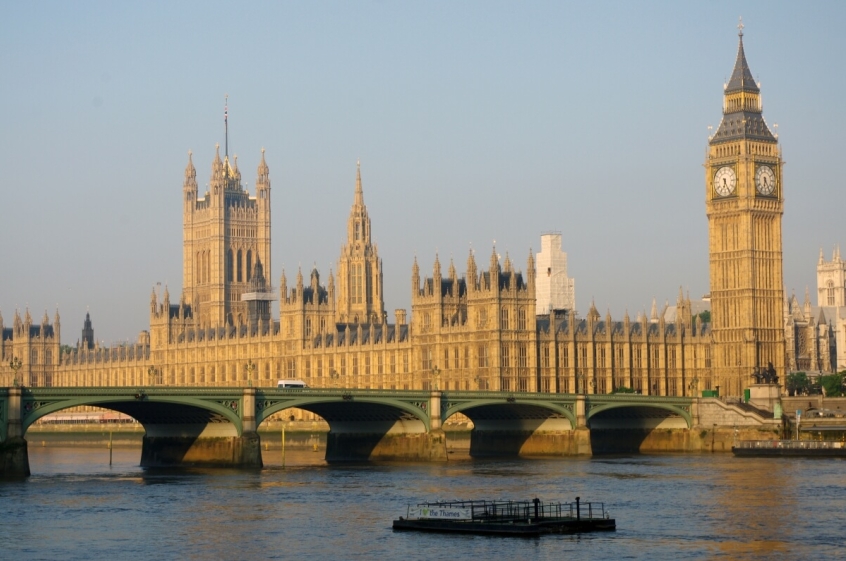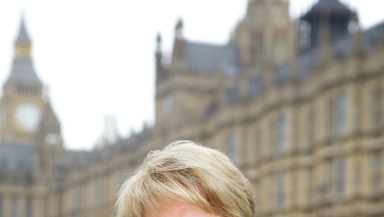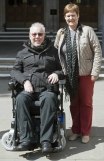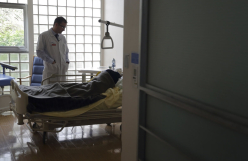
MPs voted overwhelmingly today to rejected assisted dying in one of the best attended debates on a Friday in recent months.
With 118 in favour and a resounding 330 against, the vote showed compellingly, once again, that the nation's common mind is far from being won over by the arguments in favour of allowing a medically assisted death for the terminally ill.
Among the strongest speeches was the intervention from Philippa Whitford, health spokeswoman for the Scottish Nationalist Party and also a surgeon specialising in breast cancer. She said she had never believed that "death was a good treatment for anything".
MPs across the parties along with Christian and other bodies celebrated their triumph on social media after a hard fought campaign which saw repeated media interventions by public figures such as the present Archbishop of Canterbury Justin Welby, against, and one of his predecessors Lord Carey of Clifton, in favour.
Nadine Dorries MP tweeted:
Baroness Campbell tweeted:
Justice minister Mike Penning was among many who spoke against. He spoke in a personal capacity. He described his grandmother who lived 20 years after a stroke, defying all expectations. He voted against the bill because he is against suicide, and said he wants better palliative care.
Parliament was told of several flaws in the bill, brought by Labour MP Rob Marris, such as lack of provision for psychiatric assessment to safeguard the mentally ill. Concerns were also raised about avaricious relatives, and the overly-optimistic view of human nature held by supporters of the bill.
Tim Montgomerie, the conservative commentator, had warned on Twitter during the debate that he feared the right to die might turn into a "duty to die".
The legislation was based on Lord Falconer's previous bill in the House of Lords which ran out of time last year.
Besides churches and othe faith groups, it was opposed by the Royal Colleges of Physicians, the British and World Medical Associations, elderly and disabled organisations, and right-to-life advocates.
Bishop of Carlisle James Newcome, lead bishop on health care issues, said: "We are heartened that MPs have decided not to change the law on assisted suicide. We believe that the proposals contained in the Assisted Dying Bill would have exposed already vulnerable people to increased risk. The vote in the House of Commons sends a strong signal that the right approach towards supporting the terminally ill is to offer compassion and support through better palliative care. We believe that all of us need to redouble our efforts on that front."
CARE, the Christian public policy charity, described its defeat as a victory for vulnerable and elderly people across the nation.
Chief executive Nola Leach said: "The legalisation of assisted suicide would have been a fundamental departure from our nation's compassionate heritage and a dangerous mistake to make. Far from being broken, the current law protects both doctors and patients. Assisted suicide would only undermine that protection."

She called for the government to invest in palliative care and hospices to ensure all have access to the best possible end-of-life care.
Roman Catholic Archbishop of Southwark Peter Smith said: "I welcome Parliament's recognition of the grave risks that this bill posed to the lives of our society's most vulnerable people. There is much excellent practice in palliative care which we need to celebrate and promote, and I hope now the debate on assisted suicide is behind us, that this will become a focus for political action."
The British Humanist Association was among those who regretted the outcome.
Pavan Dhaliwal, public affairs director, said 80 per cent of the public had supported a change in the law. "It is clear that Parliament still has some way to go before it reflects this fact. In the meantime, countless individuals are needlessly suffering, or facing the prospect of travelling to Switzerland or having their loved ones illegally end their lives."
Last year, the Supreme Court ruled that while it is willing to consider whether the lack of a right to die breaches the European Convention on Human Rights, it thought Parliament should first have the opportunity to legislate on the matter. Dhaliwal said: "Today Parliament has declined to do so, and so the fight on assisted dying must now return to the courts. We will continue to campaign in favour of assisted dying for the terminally ill and incurably suffering, as this is one of the most pressing ethical issues of our day."
Maidenhead rabbi Dr Jonathan Romain, chair of Inter-Faith leaders for Dignity in Dying, said: "We are saddened that it failed to progress, as it dashes the hopes of those who wish to avoid ending their days in pain or incapacity. We hope MPs will revisit the issue at a future debate, although it will be too late for those who face dying in distress right now."
















